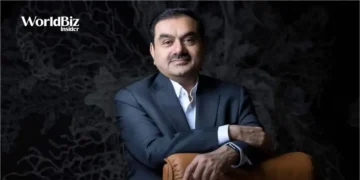Customers may be near to God for a certain business, but the representative ultimately appeases these Gods. These are those that operate in the background, trying to provide the best results within their deadlines and fulfil the promises that their company has made. Therefore, an organisation should choose its employees carefully.
Will works for your company and communicates as promised. Then, a select group of people will work, feeling free to raise the value of the expectations that transform a company from “just another one on the square” to “the one.” A brand may be created by extraordinary ambassadors for a company. So the next question is, how does one find remarkable representatives?
Paul Breloff and Simon Desjardins were facing the same question since they had both expended a lot of work as successful financial backers in India and Africa. They concluded that the primary development barriers for promising endeavours were consistently enlistment and access to talent.
Organisations were drowning in piles of resumes and unable to objectively identify the candidates who could be the greatest fit for the open post, while job seekers were stuck in a debilitating cycle of applying to several openings and never hearing back. This candidate matching exam was only partially necessary because the vast majority of up-and-comers were self-aware of their aptitudes and preferences. Additionally, it was due to the hassle of conveying one’s assets via a CV, particularly for young people with little “traditional” academic credentials.
Bosses find it extremely difficult to locate and evaluate young talent objectively, which leads to strong preferences in choice interactions, such as a desire for prestigious universities and well-known companies, which are what the vast majority of young people seeking employment require.
Instead of being compelled to find an answer, the two launched Shortlist with Matt Schnuck, a platform for connecting up-and-comers and corporations via the use of more insightful data and creativity.
For acquiring and evaluating ability, Shorttlist uses a capability-based approach. It enables candidates to compete for opportunities by showcasing their skills online. While keeping human mediation in place, it makes use of innovation to fairly assess each candidate’s potential and provide feedback, giving everyone access to a computerised tool they may use to become more aware and pursue opportunities elsewhere.
Here, Paul, the CEO and co-founder, explains how Shortlist functions as the ideal extension for candidates and recruiters.
Tell us more about the short list.
Amazing talent and fantastic organisations might think of one another as one another on the shortlist. Organisations and job hopefuls can create profiles during the shortlist phase. Every time a potential up-and-comer is being considered for a position, they undergo an intensified screening procedure before being added to the client’s dashboard as a potential up-and-comer.
First, a chatbot screens the potential employee for essential criteria including migration, wage preference, and experience level, among others. Then, during the assessment step, the candidate completes practical tasks to assess their suitability for the position (for instance, a money newcomer would respond to questions about a financial record).
Shortlist creates a thorough, skills-based profile of the competitor for the job based on these data sources as our foundation. To help organisations with recruiting, screening, and managing the talent enlisting process, Shortlist also provides an industry-leading programming platform called Shortlist Connect.
What challenges did you face in the beginning of your startup?
Many managers were reluctant to adopt the tech-based approach to handling recruiting as we started Shortlist and moved towards them. They had to choose partners to provide them with a tonne of CVs, and they used it to determine the legitimacy of a rival.
Businesses have to make an investment to become open to a more objective, appraisal-based approach to dealing with evaluating candidates for their genuine potential.
Is Shortlist self-funded, have you received subsidies, or do you plan to seek for financial backers?
In January of the previous year, we closed a $2 million Series A financing. Up till now, we have been fully funded with $3 million. Blue Haven Ventures led the investment, with Zephyr Acorn, Compass Venture Capital, and Rafiki joining them.
On the side of our work in high impact sectors, such energy access, we are also closely collaborating with a select humanitarian sponsors, such as Shell Foundation.
Currently, Shortlist is an Award-Winning, Internationally Recognised Talent Leader. According to Forbes India, we are regarded as one of the Top 5 Companies with Outstanding People Managers. We are grateful that the Facebook India Innovation Accelerator programme selected us as one of the “Main 10 new companies” in 2019. The Great Managers Institute’s 2019 list of India’s Top 100 People Managers featured my CTO Sudheer Bandaru and me.























